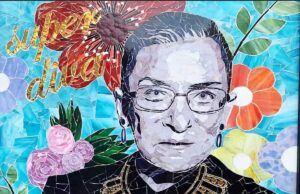More than a year after the confinement that plagued our realities due to SARS-CoV-2 began, and even without seeing a concrete end to the pandemic, we can begin to make a balance of the innumerable physical, emotional and psychological consequences that COVID-19 has left us.
Today more than ever it is clear to me that humans are extremely social beings and that living in isolation has generated endless imbalances, some of which will heal as soon as we can routinely leave home, others will need a little effort, perhaps therapy, but there will be footprints so deep and painful that they will probably never go away, and we will have to learn to live with them.
In my case, as a woman, I was left without those small chunks of time where I could be me on my own, where I could vent and forget, at least for a while, the vain, everyday problems that now plague my mind all the time, because disconnecting from the world, when you live in the same setting, is practically impossible.
As a mother, I have tried to be empathetic and patient, but the truth is that the months of confinement, the number of hours in front of electronic devices during classes and the little space available to play, have sometimes caused excessive unrest, loss of control, and probably excessive scolding, yelling, and punishment that accompany a situation of living under such pressure for so long.
As a mother, I have tried to be empathetic and patient, but the truth is that the months of confinement, the number of hours in front of electronic devices during classes and the little space available to play, have sometimes caused excessive unrest.
As a mother, I have tried to be empathetic and patient, but the truth is that the months of confinement, the number of hours in front of electronic devices during classes and the little space available to play, have sometimes caused excessive unrest, loss of control, and probably excessive scolding, yelling, and punishment that accompany a situation of living under such pressure for so long.
On a professional level, it has not been easy to combine daily housework and meet project and report deadlines. Attending virtual meetings without a cry heard in my background can already be considered a great achievement. The stress generated by trying to be in two or three “spaces” at the same time, and the feeling that we´re losing control of everything, makes us fall back into the madness of which I just spoke.
I have also seen how my children have suffered a significant delay in their social and linguistic development. Their communication with the outside world has been practically nil, in the best of cases, there are no more than 10 people with whom they maintain sporadic physical contact, and never at the same time. My oldest daughter tells me that she often feels strange, lonely, bored, sad, especially because she misses her peers, someone who talks and lives the same things as her. It is evident that the confinement has been the cause of these sensations. However, the deepest and most painful mark left by this terrible reality that we must live today is the loss of a loved one.
It is never easy to say goodbye. It is never easy to be able to start walking again when you have just lost someone close: the adjustment to that new reality is hard, painful and gloomy, but now it is even worse.
It is never easy to say goodbye. It is never easy to be able to start walking again when you have just lost someone close: the adjustment to that new reality is hard, painful and gloomy, but now it is even worse.
Those of us who have lost family or friends in the last year due to COVID-19, have gone through situations that we can never erase from our minds. We not only saw that dear person leave for the hospital, with all our faith and hopes placed in their recovery and that we would soon be together again. In the process, we were forbidden to be by their side through it all, so we had to leave them alone, scared and unable to say for certain how long we would stop seeing each other, or if we would even do it again. Those of us who were a little more fortunate, were able to maintain a direct intermittent communication thanks to a cell phone, but basically to receive medical news once a day until, finally, in one of those calls we heard “We’re sorry, we did everything we could”.
There was no opportunity to say goodbye, to hug them. Nor was there a funeral to say goodbye or to receive comfort from those close to us. Only the memory of how they went to the hospital, and a box full of ashes, which cannot be deposited either because the pandemic does not allow it.
There is no emotional closure, there is no accompaniment, there are only questions: Why? What failed? How did we get to this?
At least in my case, all this stormy process will undoubtedly leave such a deep mark that it will probably never be erased, with which I will have to learn to live, even if it squeezes my heart, in a way I never thought I would feel.
I want this story to serve as a small tribute to all those people who have gone through the loss of someone close to them due to this pandemic, and who in the process, did not have the opportunity to be close or say goodbye to them, and who are still alive with this grief, hoping that one day, we will be better.
She was born in Mexico City on April 1980. Degree in Public Relations at the Universidad del Valle de México. She has professional experience in 4 principal areas, having more than 20 years of experience in logistic and events organization, 8 years in social communication, content marketing and communication and public relations teaching.


